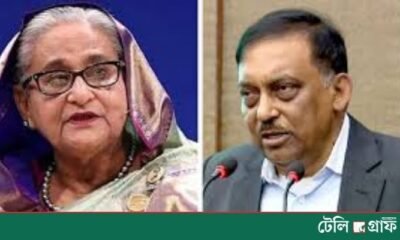Politics
Death Row Sheikh Hasina Faces Three More Charges; Army Officials Sent to Jail in Enforced Disappearance Cases.
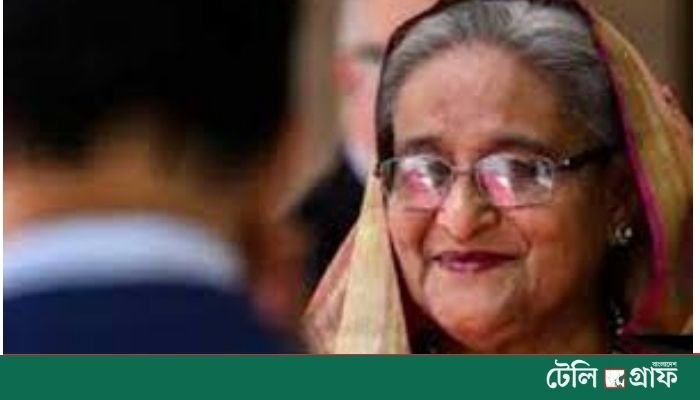
Former Prime Minister Sheikh Hasina, who has been sentenced to death in absentia for a crime against humanity, is currently facing three more critical cases before the International Crimes Tribunal (ICT).
The death sentence, delivered on Monday (November 17) by the ICT, relates to a crime against humanity case stemming from the July uprising. Former Home Minister Asaduzzaman Khan Kamal was also handed sentences of life imprisonment and death on various charges in the same verdict. In a related development, former IGP Chowdhury Abdullah Al Mamun received a five-year sentence after pleading guilty and turning state witness.
This death sentence follows a previous conviction in July of this year where Sheikh Hasina was sentenced to six months in prison for contempt of court, based on an audio recording where she stated she had “received a license to kill 226 people,” which the prosecution argued was an attempt to obstruct the judicial process.
Army Officials Jailed in Two Enforced Disappearance Cases
Out of the three pending cases, formal charges have been submitted in two enforced disappearance cases. On October 8 this year, the ICT took cognizance of the formal charges against Sheikh Hasina and 27 others in connection with high-profile disappearances during the former Awami government’s tenure and issued arrest warrants.
The Chief Prosecutor, Mohammad Tajul Islam, noted that the charges involve abductions, confinement in secret detention cells, torture, and killings carried out by errant members of RAB and DGFI against political activists, journalists, and bloggers.
In a recent turn of events, several army officers, who are accused in these two cases, appeared before the court on November 17 and were subsequently ordered to be sent to jail. The next hearing for these cases is scheduled for November 23.
Shiplu Chattar Case Under Investigation
The third case concerns the May 5, 2013, Shapla Chattar killings. Sheikh Hasina and 20 others are accused in this case, brought forward by leaders of the Hefazat-e-Islam group. The deadline for submitting the investigation report in this case has been extended to January 12.
Politics
Bangladesh Requests India to Return Death-Row Convicts Hasina and Kama

Bangladesh has officially sent a letter to India requesting the return of former Prime Minister Sheikh Hasina and former Home Minister Asaduzzaman Khan Kamal, both sentenced to death for crimes against humanity. Foreign Affairs Adviser Md. Touhid Hossain disclosed the development while speaking to reporters on Sunday.
He said the formal request was sent to New Delhi on Friday, seeking the repatriation of the two convicted individuals. On 17 November, the International Crimes Tribunal delivered its first verdict related to the July mass uprising, sentencing Sheikh Hasina to death on two charges and former minister Kamal on one charge.
The tribunal ruled that the charges brought against them had been proven. Former Inspector General of Police Chowdhury Abdullah Al-Mamun, who served as an approver, received a five-year prison sentence.
The verdict was handed down by a three-member bench of Tribunal-1, headed by Justice Md. Golam Mortuza Mojumdar, with Justice Md. Shofiul Alam Mahmood and Judge Mohitul Haque Enam Chowdhury as members. The ruling marks the first judgment in cases linked to crimes against humanity committed during the mass uprising.
Politics
Jamaat Leader Accused of Seizing Farmer’s Cows Over Alleged Dues

A local leader of Jamaat-e-Islami has been accused of forcibly taking two cows from a farmer in Dumki upazila of Patuakhali. The incident occurred on Friday evening, 21 November, in South Muradia village, according to the victim, farmer Abdul Barek Majumdar.
Locals reported that Jalil Pyada, the general secretary of Muradia Union Jamaat-e-Islami, took the cows from Barek’s house. The matter was later brought to the acting chairman of the union council, Hafizur Rahman Forkan, who held a meeting at Panchayet Bazar in the presence of former UP member Reza.
During the meeting, Jalil claimed that Barek’s son owed money to his brother and that the cows were taken to recover the outstanding amount. He also stated that a related case is ongoing in court.
Farmer Barek, however, said it was unjust to seize his property based on alleged dues involving his son. The acting chairman noted that although Jalil admitted taking the cows, he failed to present any evidence of the supposed debt.
Officer-in-Charge of Dumki Police Station, Zakir Hossain, said no formal complaint has been filed yet. He added that legal action would be taken if a complaint is lodged.
Politics
Parties Back Caretaker Government—But Only for the Future, Not Now
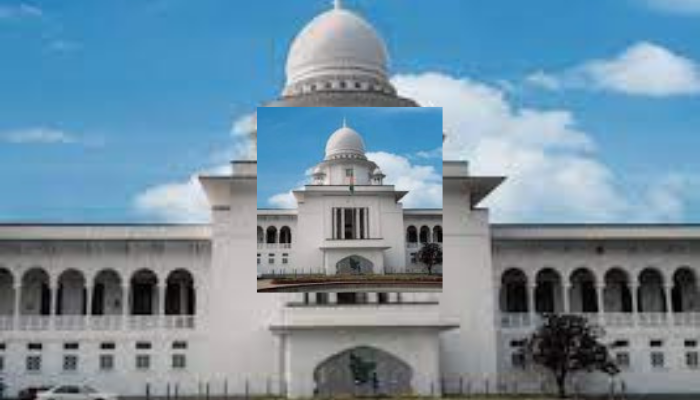
A recent Supreme Court verdict restoring Bangladesh’s caretaker government system has sparked renewed debate, as the upcoming national election will not be held under this arrangement. The ruling clarifies that the caretaker mechanism will apply only in future elections, potentially from the 14th parliamentary polls onward.
Political parties that long demanded the immediate reinstatement of the caretaker system—including the BNP and Jamaat-e-Islami—submitted review petitions seeking the arrangement only “prospectively.” Their revised stance has raised questions among analysts, who note that the court’s decision reflects the arguments presented by the petitioners themselves.
BNP lawyer Zainul Abedin argued that an interim government is already in place and preparations for the election have begun, making an immediate caretaker government impossible. He cited the 1991 election overseen by Justice Shahabuddin Ahmed as an example of a fair poll conducted under an informal interim setup.
Jamaat’s lawyer Shishir Monir said the court deliberately emphasized a prospective implementation to avoid political controversy about the current government’s tenure. Lawyer Sharif Bhuiyan echoed this, adding that without an active parliament, the legal process for forming a caretaker administration cannot proceed.
However, senior Supreme Court lawyer Manzil Morshed believes political parties have shifted from their earlier demands, which ultimately shaped the court’s reasoning.
Attorney General Asaduzzaman described the verdict as historic, stating that the restored caretaker system is now constitutionally valid and must be implemented within 15 days of the next parliament’s dissolution. He also remarked that the earlier judgment led by Justice Khairul Haque was flawed and may have violated penal code provisions.
He further clarified that this ruling cannot be reviewed again, and that it does not conflict with the ongoing case regarding the 15th amendment, which abolished the caretaker system in 2011.
-
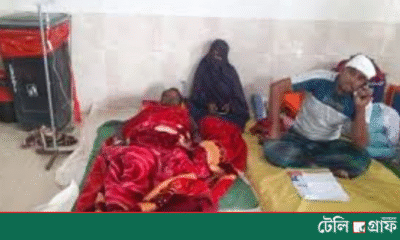
 People and Culture1 day ago
People and Culture1 day agoWedding Invitation Dispute Sparks Violent Clash in Jhenaidah; 10 Injured
-

 Economy23 hours ago
Economy23 hours agoGiant 32-kg Poa Fish Caught Near St Martin’s; Fisherman Demands Tk 600,000
-
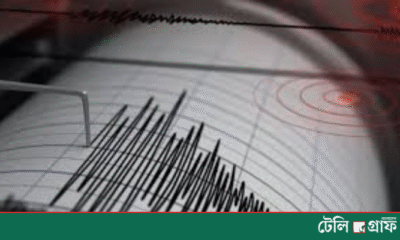
 People and Culture1 day ago
People and Culture1 day agoFive Dead as Strong Quake Jolts Bangladesh; Dhaka at Major Risk
-

 Weather1 day ago
Weather1 day agoLow-Pressure Likely Over South Andaman Sea as Temperatures Set to Dip
-

 International12 hours ago
International12 hours ago24 Killed in Israeli Strikes Despite Gaza Ceasefire



